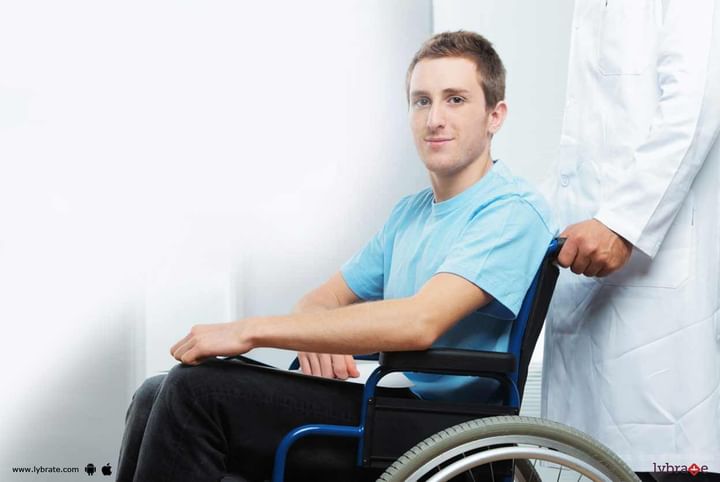Get the App
For Doctors
Login/Sign-up
Last Updated: Feb 16, 2020
BookMark
Report
Multiple Sclerosis - How Can Physiotherapy Help You?
What is Multiple Sclerosis?
Multiple sclerosis is a neurological condition and is caused by damage to myelin, which protects the nerve fibres of the central nervous system.
Symptoms
- Fatigue
- Depression
- Cognitive problems
- Loss of sight and mobility
- Double vision
- Blindness in one eye
- Muscle weakness
- Trouble with sensation
- Trouble with coordination
How Can Physiotherapy Help You?
Physiotherapy can help in cases of multiple sclerosis by providing:
- Physical independence
- Flexibility
- Strength
- Fitness
- Increased chances of staying in employment
- Improved general health and quality of life
Ways of Therapy for Multiple Sclerosis
1. Improve posture
- By putting the right muscle in the right place and at the right time to help it work efficiently.
- This is required for balancing, walking, and improving arm and hand function.
2. Improve Balance
- Multiple sclerosis can alter the way in which a person moves, making him/her feel as if he/she is more likely to fall.
- Neurological physiotherapy helps rebuild poor balance.
3. Improve Walking
- Walking is affected because of general or specific muscle weakness.
- The general weakness can be addressed by exercises.
- In specific weakness, the treatment is likely to be more specialized with rehabilitation technology.
- The most common treatment method for a drop foot or a floppy foot is with functional electrical stimulation (FES).
4. Improve Spasticity
- Muscle spasms, pain, or stiffness in the muscles are experienced by these patients.
- The physiotherapist can help reduce the problems associated with this type of altered muscle function and leg weakness.
- The therapy involves stretches to help you maintain mobility and prevent muscle spasms. It also includes training on how to use mobility aids like a cane, walker, or a wheelchair.
- For rehabilitation exercises, splints or orthoses are used.
5. Improve Fatigue
- Fatigue is a symptom of multiple sclerosis; however, people also get fatigued because of the extra effort they have to invest in all their activities.
- Neurological physiotherapy will work with you to help you manage the fatigue so you can save your energy for the good stuff.
During a relapse
- A relapse — also called a flare or exacerbation — is a period of time when symptoms of multiple sclerosis are more frequent or severe.
- During this period, you may have greater difficulty with everyday tasks that include working, cooking, walking, or bathing.
Progressive multiple sclerosis
- If you have primary progressive multiple sclerosis, you don’t experience relapses. Instead, your disease is on a gradual, constant decline.
- For advanced multiple sclerosis
- People with advanced multiple sclerosis have severe multiple sclerosis symptoms.
- People with advanced multiple sclerosis are non-ambulatory.
- It means they cannot walk or get around without help from another person or a motorized device. Also, people at this stage have an increased risk of developing other health conditions such as osteoporosis or epilepsy.
In case you have a concern or query you can always consult a specialist & get answers to your questions!



+1.svg)
